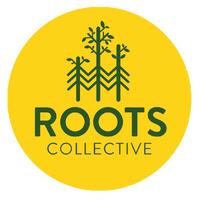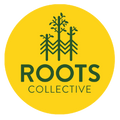[Staying Rooted] Happiness and humility: 5 lessons from a social entrepreneur who went back to school

Introduction by Allister Roy "Aloy" S. Chua
At the Roots Collective, we truly believe that partnerships and collaboration are crucial in achieving our missions. Any social problem we attempt to face is a complex one, and as I often say, no one of us can be arrogant as to claim we can solve it all on our own - that ability is reserved for God and God alone. And as social enterprises have increased in number and prominence, so too has the social enterprise intervention landscape grown - institutions and organizations that may not be frontliner social enterprises per se, but whose own missions, one way or another, are focused on getting their fellow MSMEs to scale up in order to achieve more impact.
One of these institutions is the Ateneo Graduate School of Business (AGSB), which in 2017 launched a social enterprise-specific track of their Masters in Entrepreneurship (ME) program, called the Masters in Entrepreneurship - Social Enterprise Development Track (MESEDEV), in partnership with Bayan Academy. It is a very practical one, where the students’ own existing social enterprises are their projects that they must improve on throughout their stay at the AGSB. Far from being overly academic or theoretical in nature, the course makes them all the more hands-on in making their ventures work, and work better at that - in this regard, the instructors are more akin to comprehensive consultants.
While I have yet to take up the program (and thereby bringing the Roots Collective with me), a few of the social entrepreneurs in our community have done so, and we have gotten a glimpse of life in MESEDEV, especially their experiences under the tutelage of the late Dr. Eduardo A. Morató, Jr., who was also the founder of Bayan Academy. One of them, our good friend Maan Sicam, the CEO and co-founder of Happy Helpers, became a gold medalist in her class, and was selected to represent MESEDEV to write a graduation response speech for their upcoming delayed graduation this coming Sunday, 17 October 2021.
Although the top student of another program was ultimately selected to deliver their speech on Sunday, we are happy and honored to present to you, exclusively through this column and ABS-CBN News, the text of Mommy Maan’s speech. We have proofread and very slightly edited it to avoid redundancy, but we have otherwise preserved most of the text in the form as she wrote it.

(Graduation Response by Ms. Marianne dC. Sicam for the Ateneo Graduate School of Business Commencement Exercises, 17 October 2021)
In July of 2018, I was submitting my requirements at the registrar’s office and paying my dues to the cashier at the AGSB to complete my requirements for MESEDEV. I was then a lost 40-year-old enrollee - carrying my 3-month-old son and dragging my other, 4-year-old son around the buildings - asking people for directions and waiting for the elevator that seemed to take forever. While walking around the halls of the building, I was starting to question my decision to enroll. I had not been in any classroom setting in the last 20 years; I had two daughters in middle school, a toddler, a newborn, and a start-up business that was struggling to make ends meet. How could I handle all these things, plus the load of the upcoming program?
September 2018 came and our classes finally started. I was so excited that I bought a new bag, notebook, and pen. I was so excited to be a student again, to learn, and to listen. It took weeks - ok, months - for me to get used to the hundreds of pages of readings and case studies. It was hard work but I enjoyed every minute of it. It was amazing to be surrounded by like-minded and like-hearted people. Being in the same room with people, many being significantly younger than I am, that were eager to bring success into their social enterprises, gave me hope that our country has a bright future. Having great teachers and mentors who constantly challenged us to be more than bleeding hearts, and become great leaders of our own social enterprises.
I will definitely miss the halls of the Ateneo Graduate Business School. Our classrooms were located on the 4th floor on the left side of the school. I figured, after 18 months of climbing those long and steep stairs, that I would be able to climb those stairs without stopping to rest. I never achieved that goal, but it will always be a dream. Being back in school brought out the collaborative and competitive spirit in all of us. For example - how to get to the photocopying machine first before the law students arrived.
And so, I am thankful for my Ateneo and MESEDEV journey, for how it has shaped my leadership and for who I am today. I would like to share the lessons that I will never forget from my MESEDEV life:
1. We don’t know all the answers.
It is a very humbling experience to listen to every class discussion. It is not just about the teacher imparting knowledge or challenging our views, but listening to the brilliant ideas of my own classmates. “Bakit di ko naisip yun? [Why didn't I think of that first?]” was my common initial reaction.
Being in class taught me how to listen to others - to really, truly listen and understand how an idea could be from someone else’s perspective. How can we learn to listen? Stop talking. And if you knew me personally, you would know this was a difficult task. “Listen with the intent to understand,” to quote the stoic philosopher Zeno.
As leaders, we are not expected to know the solutions right away. When we give others the chance to speak, we not only get new ideas, we also empower our people. This signifies that they are important, and their voices are heard.
This is the most practical learning we can constantly do not just in our work, but in our lives as well. And yes, this will apply to listening to your wife, husband, or partner. It can work wonders.
2. Focus on the process - the outcome will follow.
We all enrolled in our programs to learn how to think, plan, and work more strategically. How to lead and how to collaborate with others. To learn how to create a vision and work towards that vision. To have critical thinking.
We were all given tools to make our work easier, in order to be better leaders. We might forget every detail of those tools, but it is the discipline that is instilled in us that we should never let go. Focus on the things that we can control, and that is the process.
3. Constantly express your gratitude for the people who have brought you where you are now.
We have all made sacrifices to be able to attend our classes. Letting go of the day-to-day work that I had, and delegating it to my colleagues and staff, was very hard for a person who loves to be in control. But because of this, I had more time to learn how to become a better leader, while the people who were left behind became better at what they do as well. I am here speaking in front of you because of them.
I would like to thank first and foremost, my mentor, our guru, the late Dr. Eduardo A. Morató, Jr., for always challenging and questioning everything that I do. Find a mentor that would push you to your limits because of pure love. His dream is now alive in all of us striving to make our social enterprises bigger and better.
Thank you to my business partner, Joanne Endaya, and all our staff, for all the support that they have given me, and their constant belief in the dream and vision of our company.
To our professors, thank you for your patience and understanding. Although we were masteral students, we were still like children, hungry for knowledge.
To my classmates who are now my lifelong friends, thank you for being my sounding boards until now. I have learned so much from all of you. You give me the strength and hope that there are many people out there who look at the marginalized and see what can be, and how we can serve them.
And of course, to my loving husband and four wonderful children. Thank you for giving me space and support so I can make myself better.
4. Our late guru always said, “Make yourself obsolete everyday.”
A lesson I only finally understood two years after the first time hearing it. To make yourself obsolete everyday means to learn continuously, to always strive to be the best version of yourself. To make yourself obsolete means to train and empower others, so they will not need you anymore.
To every presentation, to every answer to his question, he would always ask back, “So what?” To constantly hear that could be so frustrating and irritating at moments. But asking “so what” pushes you to think further, to go in different directions. As he had said, if “so what” is not asked, then you’ll always be stuck at the same level.
Which leads me to my last learning point:
5. Magis.
We are Ateneans. We can be more and do more, to love others, and to love God.
Magis is a Latin word that means “more” or “greater”. Fr. Bienvenido Nebres, S.J., once said that “the person who tries to follow the Magis is not just a person who works harder and harder. But he is a person who is willing to serve others and accept the pain and suffering that comes with serving others.”
In the final defense of my business plan, the first question that our guru asked me was, “How committed are you to doing this?” It shook me to my core. After 18 months of struggling and working hard, he still asked me if I was committed?! It was only after I left the room that I realized what his question meant.
BAKIT? Para saan? Why? What for?
We all need to find our purpose, our WHY. Because it is when we do our purpose well that we will find great joy. He was asking me if I could see my purpose in what I was doing.
As a social entrepreneur, I am constantly trying to be more for others. You do not need to be a social entrepreneur to do good - we can do business and do good at the same time. “Makakabuti ba sa nakararami?” In every decision that you make, in every product that you launch, and in every meeting that you preside, ask yourself, “Will this do good for all?”
We at the MESEDEV program were notoriously called “bleeding hearts” by our late guru. He called us many names, as he is notoriously known for, most of which will really strip every single ounce of pride from your body. We were called “bleeding hearts'' because we only knew the social part of social enterprise. He taught us that the enterprise is the noun, the social is just the adjective. How can we help others when we cannot make our businesses survive, let alone thrive?
Four years later, I can confidently say, I did it! I was able to handle all these things and there were no regrets. Because this is my PURPOSE. If I could do it again, I would. Yes, including having more children - and to go through my MESEDEV program all over again. It did not just change the way we now do our business, but it definitely changed me as a leader, as a person, as a human being.
The pandemic we are experiencing now is just another challenge. How well we rise up to the challenge as leaders will be the true test. The Ateneo has armed us with the proper mindset, skillset, and heartset to face anything. We are the leaders today that will shape our country’s tomorrow. Even though our life in school has ended, our work has just started.
Thank you very much, and have a great, happy day!
~
Marianne “Maan” dela Cruz-Sicam is the co-founder and CEO of Happy Helpers, a social enterprise providing residential and commercial cleaning services by urban poor mothers, uplifting their lives and families in the process. Also part of the Roots Collective community, their line of all-natural cleaning products (which are also used by their cleaners) can be found here.
This article was originally published on ABS-CBN News on 14 October 2021, in partnership between the Roots Collective and ABS-CBN News.











Leave a comment